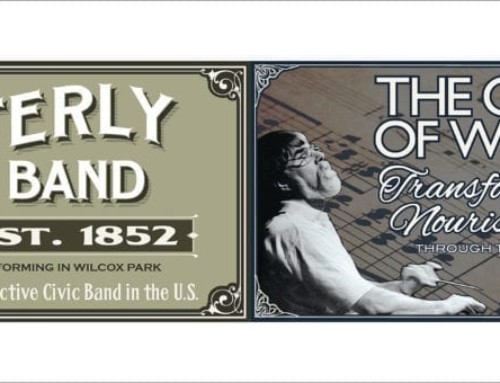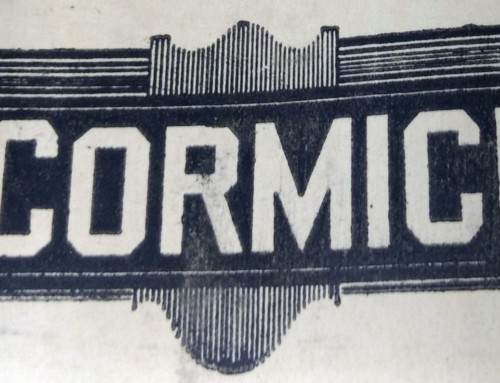Given its colonial roots, it should come as no surprise that Rhode Island has had some laws enacted that would be considered both archaic and unnecessary by modern standards. What would likely surprise many Rhode Islanders, however, is how many of these laws remain active and are still enforceable today. Some of these laws have practical applications that might not be apparent to many citizens, but others defy most reasonable explanations. In today’s article, we will discuss some of the most curious of Rhode Island’s state laws.
Rhode Island General Laws § 11-22-11
“Every person who shall drive any horse over any of the public highways, for the purpose of racing or trying the speed of the horse, shall be fined not more than twenty dollars ($20.00) or imprisoned not exceeding ten (10) days.”[1]
This law is perhaps the strangest of all those still effective in Rhode Island. This law, which appeared in the 1896 Rhode Island General Laws, was an obvious carryover from the period prior to the popularization of automobiles in the United States. Despite the fact that it likely has little modern use, the statute was analyzed and reaffirmed as recently as 1956, long after horses ceased to be used as a major means of transportation in the state. In 2018, this was one of the laws targeted for repeal by House Majority Whip John Edwards who unsuccessfully led a campaign for the removal of several of Rhode Island’s more impractical laws.[2]
Rhode Island General Laws Chapter 11-12
“Every person who shall voluntarily engage in a duel with any dangerous weapon, to the hazard of life, shall be imprisoned not exceeding seven (7) years nor less than one year.”[3]
This law, commonly referred to as Rhode Island’s “Dueling Law,” was first recorded in the state more than 200 years ago, and was another that was targeted by Edwards in 2018. To the surprise of many, Edwards’ efforts were derailed by the fact that the law is still used on occasion. In November 2017, a North Providence woman plead no contest to “aiding a fight by appointment” for encouraging her daughter to fight another girl, an act explicitly prohibited by the dueling law.[4] The portion of the law this woman was charged with violating reads:
“Every person who shall be present at any fight as provided in § 11-12-6 as an aid, second or surgeon, or who shall advise, encourage or promote the fight, shall be imprisoned not more than five (5) years or be fined not exceeding one thousand dollars ($1,000).”[5]
Despite the seemingly unlikely circumstances that would result in a Rhode Islander being charged under the Dueling Law, these exact circumstances have come about as recently as three years ago.
Rhode Island General Laws § 45-16-1
“Whoever is legally chosen to the office of town sergeant, and refuses to serve in that office, shall pay a fine of seven dollars ($7.00), to and for the use of the town, to be levied and collected, upon conviction, by warrant of distress issued by any justice of the peace of a town, the warrant to be directed to the division of sheriffs, and no person is obliged to serve in the office more often than once in seven (7) years.”[6]
This law is intriguing for two reasons. Firstly, this law requires a situation in which an individual would unwillingly be chosen to the office of town sergeant. Secondly, this law, which was last updated in 2012, calls for an amusingly small fine of only seven dollars. When this law was recorded in 1896, a fine of $7 would be equivalent to just over $215 in 2020, making this fine a bit less puzzling, however, with an update as recently as 2012, it is unclear why this fine was never increased.[7]
Rhode Island General Laws § 15-1-2 and 15-1-4
“No person shall marry his or her sibling, parent, grandparent, child, grandchild, stepparent, grandparents’ spouse, spouse’s child, spouse’s grandchild, sibling’s child or parent’s sibling.”[8]
“The provisions of §§ 15-1-2 and 15-1-3 shall not extend to, or in any way affect, any marriage which shall be solemnized among the Jewish people, within the degrees of affinity or consanguinity allowed by their religion.”[9]
While the initial law seems rather straightforward and is similar to current laws in most states, the provisions set forth in 15-1-4 add an interesting qualification for marriages among close family. The fact that Rhode Island State Law allows the practices of any religion to determine the legality of a certain action makes this law rather unique.
Rhode Island General Laws § 5-2-9
“Town or city councils or licensing authorities in any city or town may permit licensees operating bowling alleys, or persons paying a tax for the operation of a bowling alley, to operate rooms or places where bowling, playing of billiards, or pocket billiards for a fee or charge may be engaged in by patrons of those rooms or places on the first day of the week …. provided, that no bowling alley or rooms or places where bowling, playing of billiards, or pocket billiards for a fee or charge is operated on the first day of the week within two hundred feet (200′) of a place of public worship used for public worship.”[10]
This law, which was first passed in 1923, is another which takes the practice of religion into consideration. It is likely that few, if any, people outside of the proprietors of pool halls and bowling allies, are aware that these facilities cannot be open on Sundays unless they are more than 200 feet from any place of public worship. While billiards are sometimes considered a vice and a game vulnerable to gambling, the inclusion of bowling allies indicates how they were once held in a similar regard among lawmakers.
Similarly, according to Rhode Island General Laws § 41-6-6: “No license shall be granted for any area or enclosed ground [for athletic games] within five hundred feet (500′) of any church or chapel.”[11]
Rhode Island General Laws §9-6-9
“In every action or proceeding, civil or criminal, for libel or slander, the defendant may, with his or her plea of not guilty or his answer, file a written notice that he or she will prove the truth of the publication charged as libelous, or of the words charged as slanderous, and in such case may, upon the trial, give the truth in evidence, without any special plea of justification or affirmative defense in his or her answer; and the truth, unless published or uttered from malicious motives, shall be sufficient defense to the person charged.”[12]
All states have laws against defamation in place, however, the Rhode Island law contains a unique requirement at its end. As the law states: “the truth, unless published or uttered from malicious motives, shall be sufficient defense.” In most defamation laws, the truth in evidence alone can be an adequate defense against guilt regardless of motive, however, in Rhode Island, the truth is not a sufficient defense when a statement is made with malicious intent.[13]
Rhode Island General Laws §44-18-30(29)
“There are exempted from the taxes imposed by this chapter the following gross receipts:”
“(29) Bibles. [Unconstitutional; see Ahlburn v. Clark, 728 A.2d 449 (R.I. 1999); see Notes to Decisions.] From the sale and from the storage, use, or other consumption in the state of any canonized scriptures of any tax-exempt nonprofit religious organization including, but not limited to, the Old Testament and the New Testament versions.”[14]
This may be one of the only state laws in existence which specifically states that it has been ruled unconstitutional within the text of the law itself. In 1989, the United States Supreme Court found that a sales tax exemption on bibles and religious literature was unconstitutional in the case of Texas Monthly, Inc. v. Bullock. This ruling led the Rhode Island Tax Administrator, Gary Clark, to enact a regulation, SU 92-136, “which made bibles and other canonized scriptures subject to state sales tax.”[15]
This regulation, however, conflicted with the Rhode Island State Law which was reaffirmed in 1956. This confusion left Rhode Island booksellers perplexed as to how to tax certain literature. Ten years later, in 1999, in deciding the case of Ahlburn v. Clark the Rhode Island Supreme Court confirmed that Rhode Island General Law §44-18-30(29) was unconstitutional.[16] Despite this, the law remains in place.
The State Laws of Rhode Island contain some fascinating provisions which can, at times, lead to more questions than answers. The antiquated nature of several of the statutes highlighted above have relatively minimal applicability to modern society, while others defy reasonable explanation. In many cases, these laws exist simply based on the fact that lawmakers have not bothered to have them stricken from the books and in other cases, they still remain in use. Although these laws are rarely used and virtually unknown, they serve as a telling reminder of the past.
[su_accordion class=””] [su_spoiler title=”Footnotes” open=”no” style=”default” icon=”plus” anchor=”” class=””]
[1] Rhode Island General Laws Sect. 11-22-11, https://webserver.rilin.state.ri.us/Statutes/TITLE11/11-22/11-22-11.HTM.
[2] McDermott, Jennifer, “That R.I. law against dueling — still used, lawmaker learns” Providence Journal, 11 July 2018.
[3] Rhode Island General Laws Chapter 11-12, https://webserver.rilin.state.ri.us/Statutes/TITLE11/11-12/INDEX.HTM.
[4] McDermott, Jennifer, “That R.I. law against dueling — still used, lawmaker learns” Providence Journal, 11 July 2018.
[5] Rhode Island General Laws Sect. 11-12-6, https://webserver.rilin.state.ri.us/Statutes/TITLE11/11-12/11-12-6.HTM.
[6] Rhode Island General Laws Sect. 45-16-1, https://webserver.rilin.state.ri.us/Statutes/TITLE45/45-16/45-16-1.HTM.
[8] Rhode Island General Laws Sect. 15-1-2, https://webserver.rilin.state.ri.us/Statutes/TITLE15/15-1/15-1-2.HTM
[9] Rhode Island General Laws Sect. 15-1-4, https://webserver.rilin.state.ri.us/Statutes/TITLE15/15-1/15-1-4.HTM
[10] Rhode Island General Laws Sect. 5-2-9, https://webserver.rilin.state.ri.us/Statutes/TITLE5/5-2/5-2-9.HTM
[11] Rhode Island General Laws Sect. 41-6-6, https://webserver.rilin.state.ri.us/Statutes/TITLE41/41-6/41-6-6.HTM
[12] Rhode Island General Laws Sect. 9-6-9, https://webserver.rilin.state.ri.us/Statutes/TITLE9/9-6/9-6-9.HTM
[13] “Rhode Island Defamation Laws and Standards” R.M. Warner Law Firm, https://kellywarnerlaw.com/rhode-island-defamation-laws/.
[14] Rhode Island General Laws Sect. 44-18-30, https://webserver.rilin.state.ri.us/Statutes/TITLE44/44-18/44-18-30.HTM.
[15] Fazendeiro, Rory Zack, Sarah K. Heaslip, Melissa Coulombe Beauchesne, and Heather M. Spellman, “1999 Survey of Rhode Island Law: Cases: Constitutional Law” Roger Williams University Law Review, vol. 5, no. 2, pg. 642.
[16] Fazendeiro, Rory Zack, Sarah K. Heaslip, Melissa Coulombe Beauchesne, and Heather M. Spellman, “1999 Survey of Rhode Island Law: Cases: Constitutional Law” Roger Williams University Law Review, vol. 5, no. 2, pg. 642.
[/su_spoiler] [/su_accordion]






